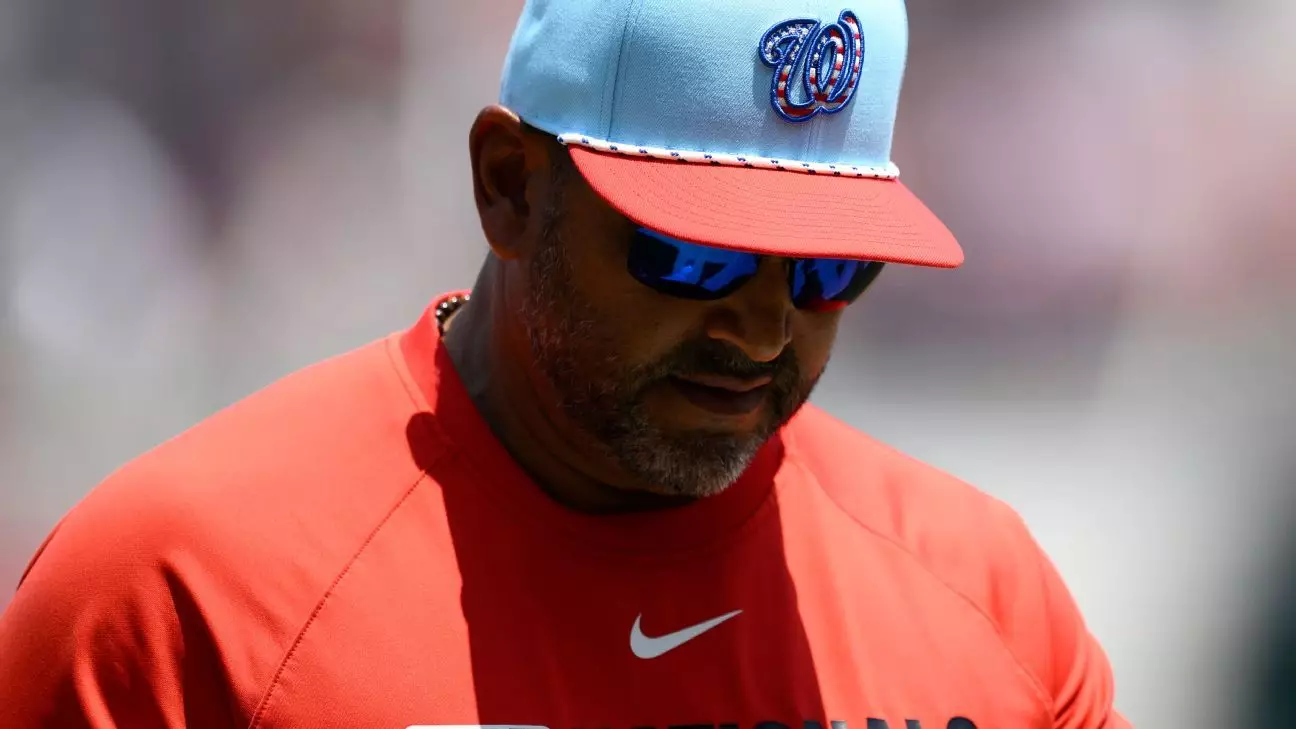The recent dismissal of the Washington Nationals’ top brass is more than just a routine shake-up; it’s a stark acknowledgment of a prolonged period of stagnation and missed opportunity. Upon firing President of Baseball Operations Mike Rizzo and Manager Davey Martinez, the organization reveals its incapacity to accept failure as a temporary setback, instead choosing to pragmatically view it as a systemic problem. While the sentiment from ownership emphasized gratitude and a desire for “new energy,” lurking beneath this surface-level appreciation lies a harsh reality: the Nationals have squandered their window of competitive relevance, and this personnel change is overdue. It is a painful testament to how complacency within leadership can derail even the most promising rebuilding efforts, especially when, as in Washington’s case, patience tested by years of underachievement finally hits its limit.
A Team at Its Crossroads
The Nationals’ struggles are emblematic of a franchise caught in limbo—caught between the remnants of a championship-winning past and the harsh demands of rebuilding for the future. Despite a World Series victory in 2019, the team has consistently underperformed, languishing at the bottom of the NL East and eking out middling seasons lacking any of the spark or consistency that might inspire hope among fans. This stagnation reflects a failure of strategic vision; for all the talk of developing young talent led by prospects like James Wood and MacKenzie Gore, progress has been painfully slow, and glaring weaknesses in both bullpen and lineup remain exposed during critical junctures.
The team’s recent performance, including an 11-game losing streak and dismal offensive output, underscores the depth of their issues. A team that struggles to score, leaves runners stranded, and suffers frequent shutouts is fundamentally flawed at its core, and these are symptoms of deeper systemic flaws nurtured under Rizzo and Martinez. The decision to dismiss them signals a willingness to accept that previous efforts didn’t succeed and that new strategies—perhaps even bold ones—are desperately needed.
The Paradox of Rebuilding in a Starving Market
Yet what makes this transition fraught with risk and debate is the Nationals’ apparent reluctance—or inability—to make meaningful investments in the roster. Rumors during the offseason predicted a shift toward aggressive free-agent signings but instead resulted in minor acquisitions. This cautious approach exposes a paradox: in a city longing for a competitive, exciting team, the Nationals seem content with incremental progress at best. While developing young talent is admirable, the failure to supplement this core with seasoned veterans or impactful free agents leaves them vulnerable to stagnation and fan disillusionment.
By refusing to spend significantly, the Nationals risk alienating their core supporters—those who want to see tangible signs of ambition and a clear plan for winning. The organization’s leadership appears to believe that patience and internal development will eventually yield results, but history warns us that patience without strategic boldness often leads to extended periods of mediocrity. Washington’s baseball future hinges on whether the new management team will transcend this cautious approach, embracing a more aggressive and innovative vision for contending.
A Reckoning for Leadership and a Hope for Renewal
Ultimately, this personnel overhaul must be understood not merely as a reaction to poor results but as a moral imperative for accountability within franchise leadership. The Nationals’ history of underinvestment, combined with an overly cautious rebuild, reflects a broader failure to embrace the responsibilities that come with being a marquee franchise. The hope, perhaps naïvely optimistic, is that the new leadership—starting with the interim general manager—will act decisively, transforming a talented but underperforming roster into a competitive force.
While skepticism persists—given the team’s track record of slow progress and missed opportunities—the firing signifies an acknowledgement that change is overdue. Whether this gamble will pay off hinges on how the organization balances the necessary patience of rebuilding with boldness in execution. For a franchise that has tasted success, albeit fleetingly, mediocrity is no longer acceptable. The real challenge lies ahead: will Washington harness its potential, or will it continue to limp along, forever on the brink of relevance?


Leave a Reply